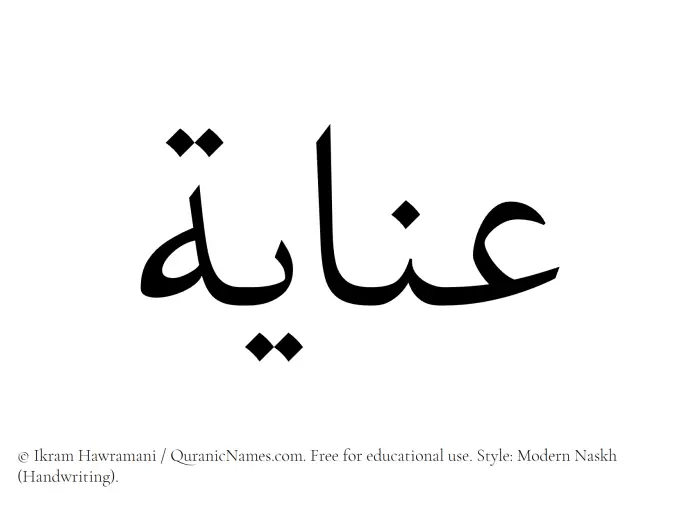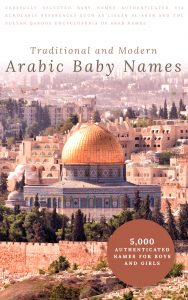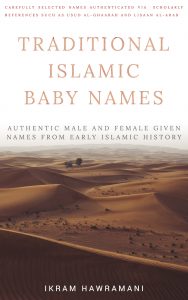1. Key Attributes of the Baby Name Anaya
| Short meaning of Anaya | Caring, Guardian and Protector See below for detailed meaning |
|---|---|
| How to pronounce Anaya | Under + NAp + YUmmy Each block is a syllable. Thick black border indicates stress/emphasis. Other pronunciations are acceptable. |
| How to write Anaya in Arabic | عناية |
| Quranic Nature (Learn more...) | Indirectly Mentioned (the name's triliteral root is used in the Quran) |
| Alternate spellings of Anaya | Anayah Anaia Anaiah Anayeh Anaaya `Anayah Enaieh Enaiah Enaeeh Enaeah Enayeh Enayah Enaaieh Enaaiah Enaaeeh All of the above spellings are acceptable for this name. You may also create your own spelling. |
| Quranic Root (Learn more...) | AIN-N-A |
2. Detailed Meaning of Anaya
Anaya is an indirect Quranic name for girls that means “care”, “protection”, “diligence”. It is a variant of the name Inaya.
Question from a reader:
I checked with a Mufti about the name Anaya. What he says is as follows: “Inaayah is the name. It means “Care” as in one who cares and is cared for etc. One who receives special treatment perhaps. As for Anayah I cannot understand how the site says it is from AWN. I do not see any link. It is from A-N-Y and is totally in contrast to what the site claims. Allah knows best”. Could you please comment on this as I was planning to name my daughter (who is due in a few days, inshaAllah), Anaya?
Our Answer:
He is right that the A-W-N root was incorrect. We have corrected it to the AIN-N-A root (which can also be written as AIN-N-Y). As for the origin of this name, it is mentioned in the classical Arabic dictionary Qamoos al-Muhit by the scholar Fairuzabadi (died 1414 CE) in the first line of the entry for AIN-N-A and on the same line with Inayah, suggesting that they are synonyms:
عَناهُ الأَمْرُ يَعْنِيهِ ويَعْنُوه عِنايَةً وعَنايَةً وعُنِيَّاً: أَهَمَّه.
He is the only scholar who mentions this word, it is either a rare word or a non-standard variant that other scholars had not heard of. Either way, it is an acceptable name since Muslims are always creating new names based on older words and there is no prohibition on this practice.
As for a Quranic reference for this root, it is used in Surat Taha in verse 111:
On that Day all faces shall be humbled before the Living, Self-Subsisting One. Those burdened with evil deeds will come to grief. (Quran 20:111)
3. How to Pronounce Anaya
4. Pictures of the Muslim Baby Name Anaya Written in Arabic
Anaya written in print and handwriting script (Naskh)



